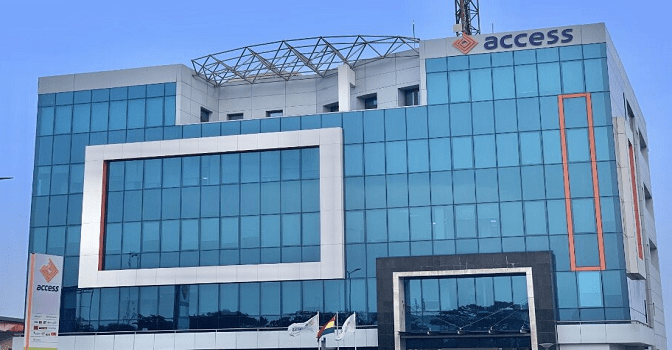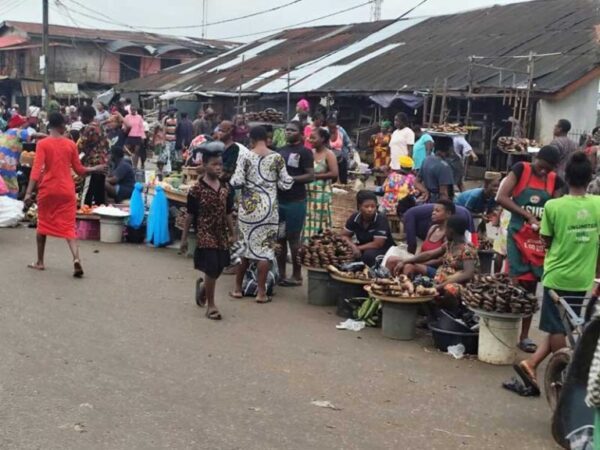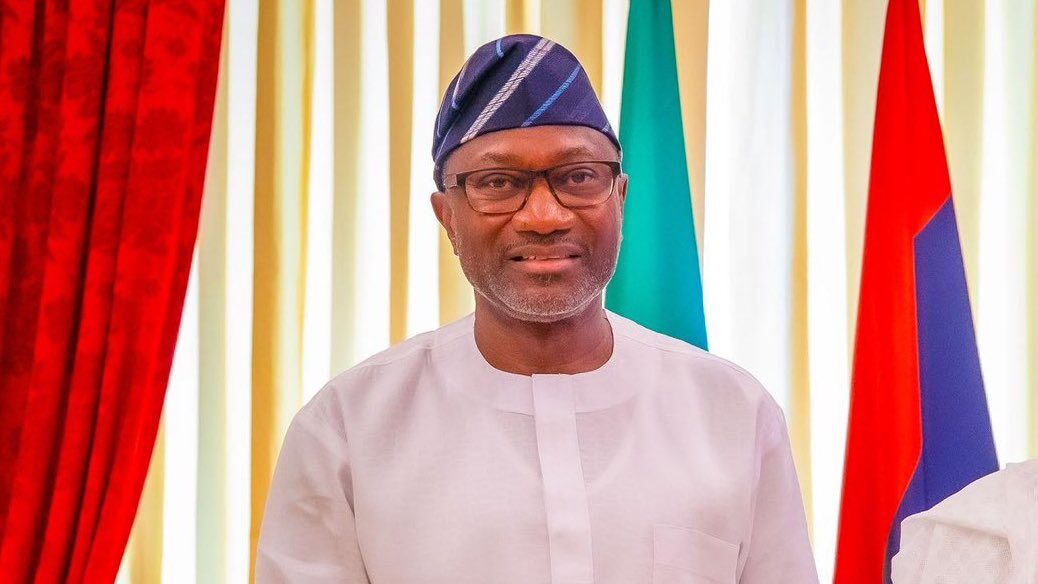
By Charles Nnaebuka
The recently published opinion piece titled: “All the President’s Enemies: How President Tinubu Lost the Nation’s Faith” by one Nnaoke Ufere, PhD, is a masterclass in selective outrage and emotional exaggeration masquerading as analysis.
Its language may be elegant but its logic is shallow and designed to provoke despair rather than inspire understanding. Let us be clear: Nigeria’s challenges did not begin in May 2023.
The current administration inherited a deeply fractured economy, decades of subsidy fraud, massive oil theft, a collapsing naira and unsustainable debt servicing that consumed over 90% of government revenue.
What the author calls “Tinubu’s hardship”(which the President himself has acknowledged several times) is the painful but necessary process of dismantling the ruins of decades long economic deceit. Allow me to dissect this sham disguised as an airticle.
- “The People”: Ufere’s claim that over 200 million Nigerians are victims of Tinubu’s failed policies and that Subsidy removal brought only hunger is nothing but an attempt at justifying a weak point. Every economist worth their credentials knows that Nigeria’s fuel subsidy was a fiscal time bomb. It cost over N4 trillion annually, more than the budgets of education, health and defense combined while enriching smugglers and corrupt cartels.
President Tinubu took the bold step previous leaders postponed for fear of backlash. Today, despite temporary hardship, the benefits are emerging thus: The Federation Account Allocation Committee (FAAC) shared over N1.3 trillion monthly, the highest in history, empowering states to invest in salaries, infrastructure and palliatives.
Also, pipelines and modular refineries are being revived as subsidy fraud collapses. Additionally, Oil marketers are investing in competitive pricing for the first time in decades. This and more are the gains of a very hard decision taken by the President on assumption of office.
Secondly, on the issue of Exchange Rate Unification, for years, Nigeria operated multiple exchange rates, a system riddled with corruption and arbitrage. By unifying the FX market, President Tinubu ended the racket that favoured the elite over ordinary Nigerians.
Foreign Direct Investment (FDI) is slowly returning as the system stabilizes. Exporters can now repatriate earnings transparently. Diaspora remittances, previously trapped by multiple rate windows, are flowing through legitimate channels.
It takes time for stability to replace distortion. But Nigeria’s currency system is finally facing reality, not illusion. We must therefore remain mindful that painful reforms are never popular at the start but history remembers those who choose correction over comfort.
- Sidelining Of The North: Ufere claimed that Tinubu sidelined the North and broke old alliances. This is laughable but let’s break down the facts. The Minister of Defence, NSA, COAS, CNS and very key cabinet members are from the North, all selected on merit.
Ironically, Northern states are the largest beneficiaries of federal agricultural and infrastructure investments including Kano-Katsina dualization, Sokoto-Badagry superhighway, Mambilla resumption and resettlement funds for farmers among others.
It is on record that Tinubu has met repeatedly with Arewa Consultative Forum and Northern Governors Forum to coordinate joint recovery efforts. So if this is what Ufere term as “alienation”, it is indeed, one that comes with record-level capital projects and empowerment in the North.
- The Southeasterners
In the same vien, the writer claim Tinubu practices “benign neglect” of the Southeast.
Meanwhile, the Second Niger Bridge, commissioned in 2023, was completed and now fully operational, ending decades of broken promises. Over N200 billion worth of federal roads (Enugu-Port Harcourt, Owerri-Onitsha, Aba-Ikot Ekpene) are under reconstruction.
In addition to this, Igbo technocrats hold major portfolios, Works (Umahi), Industry/Trade (Doris Uzoka-Anite) among others. Furthermore, on the directives of President Tinubu, Security operations have drastically reduced IPOB/ESN terror attacks in Anambra, Imo and Abia. Many markets and schools have reopened.
The records speak for themselves. The Southeast is not excluded but it is being rebuilt in peace not propaganda.
- “The Disillusioned Southwesterners”
Another misleading rhetoric is that Tinubu has betrayed his own Yoruba base.
The fact is, Southwest states have seen historic allocations and policy support. These include, Lagos-Calabar Coastal Superhighway approved as the most ambitious infrastructure project in Nigeria’s history.
Another is the Oyo-Ogun-Lagos rail and power corridor approved for private-public execution. Likewise, there is the Agric mechanization clusters launched in Ekiti, Ondo, and Osun. All these are proofs that the President’s politics have never been about tribe but transformation. Suffering is national but so also is recovery.
- “The Former Business Owners”
That Businesses collapsed due to erratic policies and forex reforms is another falsehood due to the fact that exchange rate unification ended years of multiple-rate corruption that benefitted only privileged importers.
Reforms take time to yield stability, but progress is clear: Export proceeds repatriation has risen by 26%; SMEDAN-Bank of Industry grants have supported 1.3 million small businesses since Q4 2023.
Similarly, gigital economy reforms now attract investment such that Microsoft, Google and Huawei all expanded operations in 2024. Evidently, Nigeria is being cleaned up for sustainable enterprise not the artificial prosperity of subsidy-era distortions.
- The Farmers
Maybe Ufere is not aware that over $500 million worth of security drones and surveillance equipment have been deployed to protect farms in Zamfara, Kaduna and Niger.
Ufere might have also turned a blind eye to the 10,000 new Agro Rangers under NSCDC who were recently trained.
The National Food Security Council was reactivated and N200 billion allocated for dry season farming.
Meanwhile, Anchor Borrowers repayment reforms are being enforced to end loan fraud. Harvest outputs in 2024 increased in rice, maize, and sorghum despite global climate shocks. Farmers are returning to fields, not fleeing them and that is why there’s a gradual but noticeable decline in food prices in 2025 as against their cost in 2024. Ufere is challenged to go and fact-check this.
- The Families Of The Dead
Claims by the author that neglect caused preventable deaths and collapse of healthcare is also false.
The Basic Health Care Provision Fund received the highest disbursement since inception, ₦150 billion in 2024. 1,000 primary healthcare centers are being revitalized nationwide with solar power while over 15 million vulnerable Nigerians enrolled in the National Health Insurance Authority scheme.
The Health sector reform is ongoing, equipment procurement, personnel training and local drug manufacturing incentives are in motion. Just recently, the federal government released over N11billion to clear off debt owed medical health workers among other intervention. Note also that the said debt was owed by previous governments.
- The Rank And File Of The Armed Forces
Like many other delusional minds, Ufere notes that the military is disillusioned and plotting coups. But that is far from the truth because the Nigerian Armed Forces remain disciplined, loyal and professional.
Troops’ allowances were reviewed upward by 45%.
Insurance and compensation schemes for fallen soldiers are now automated. The high morale amongst them have resulted in thousands of terrorists neutralised, over 2000 hostages rescued and thousands of illegal miners arrested between mid 2024 and late 2025.
This clearly implies morale is high because results are visible. The government has categorically mentioned that there was never an attempted coup. Therefore “whispers of coups” exist only in the imagination of the author.
- The Youth
To prove that the youth are central to Tinubu’s agenda, he has ensured that the Student Loan Act passed, a decades long demand now reality. Is the 3MTT (Three Million Technical Talent) programme training 1 million Nigerians in digital skills a joke to Ufere?
There is also the NYSC, N-Power and public service reforms being aligned to employment pathways. The Startup Act implementation now gives young innovators tax holidays and investor access. No doubt, a restless generation finally has a government giving structure to their energy. This is to the shame and disappointment of the Ufere and his likes.
- The International Investors
The writer claims Investors are fleeing Nigeria. The opposite is true. Nigeria remains Africa’s top investment destination in tech, energy and agriculture.
This is exemplified by the $14 billion in FDI commitments secured during the 2024 G-20 summit. Also, AfDB, IFC and Afreximbank have all increased portfolio exposure. Major firms including Shell, Seplat, Indorama and Dangote are reinvesting heavily as confidence grows.
This simply implies that short term volatility does not mean failure as Tinubu’s reform is restoring credibility. Proudly, just in the last two weeks, foreign reserve rose from N530.28 million to a whooping N43.17 billion! Again, Ufere is challenged to fact-check this.
- The Diaspora
If I may again ask the author, in what world are Diaspora Nigerians disillusioned when remittances reached $20.5 billion in 2024, the highest in West Africa, aided by unified FX policy. Is Ufere ignorant of the fact that the Diaspora Bond initiative and NIDCOM investment platform have opened secure channels for home based investments?
Tinubu is the first president to actively engage diaspora Nigerians through quarterly interactive summits. So how are they ashamed of Nigeria when they are actively participating in its renewal?
For the first time in a very long time, the dollar has sustained a downward spin and crashing against the Naira. Experts have projected that with the onset of the yuletide season, the dollars would continue this downturn due to more diaspora remittances in addition to other Tinubu’s economic reforms.
I will therefore advise Ufere and his likes to quickly hasten to change any dollar in their possession to avoid premium tears.
- The International Community
Tinubu was specially invited to the G-20 Summit and the World Economic Forum, signaling high international regard. Therefore the narrative of disrespect is balderdash. Also, Nigeria’s foreign policy realignment with ECOWAS, AU and BRICS shows renewed diplomatic weight.
It is in the same vein that the U.S. Secretary of State, IMF and World Bank have all publicly endorsed Nigeria’s reform path. To the shame of Ufere and his cohorts, Nigeria’s image is being rebuilt with seriousness and substance not slogans.
- The Media
Again the assertion that Tinubu is silencing the press is grossly erroneous.
Nigeria remains one of Africa’s freest media spaces with over 350 radio stations, 100 TV stations, 100+ online dailies publish daily where many are sharply critical of government. I doubt any journalist is in jail for opinion.
Also, Tinubu’s government increased public information access through the Freedom of Information digital portal, ensuring transparency.
To the author and like minds, criticism is allowed under Tinubu’s Government. What is REJECTED is DISINFORMATION disguised as ANALYSIS like Ufere’s article.
The Reality
Nnaoke Ufere’s essay confuses hardship with hatred. Nigeria’s recovery is underway, slow, steady and structural. Ufere’s “analysis” reads less like field research and more like recycled social media rhetoric. The claim that “everywhere and everyone hates Tinubu” is not journalism but wrong projection.
Independent polls by reputable firms such as NOI Polls (Sept. 2024) and Africa Polling Institute show that while Nigerians express economic frustration, a majority support the administration’s anti-corruption and subsidy reforms as necessary sacrifices for national survival.
Every reform Ufere condemned is what economists, development partners and reform minded Nigerians have demanded for decades. President Tinubu is not creating enemies but confronting the entrenched interests that profited from national dysfunction.
The final truth is that transformation is never painless. But no serious nation reforms its economy, secures its people and builds infrastructure without turbulence. The President’s duty is not to be liked but to deliver. And on every measurable front, fiscal transparency, security reform, infrastructure, investment inflows and governance accountability, progress is clear, steady and irreversible. No reform driven leader in history, from Ghana’s Rawlings to Indonesia’s Widodo, was celebrated in the middle of transformation.
The reward comes after stability returns. Nigeria is not collapsing but correcting. History will remember this phase not as the age of hardship but the dawn of honesty. Those betting on failure will be disappointed because the reforms of today are the foundations of tomorrow’s stability. The President is not losing the nation’s faith; he is restoring its future, brick by brick, policy by policy with courage history will remember.
*Charles Nnaebuka, PhD, a public affairs analyst, writes from Lagos.





